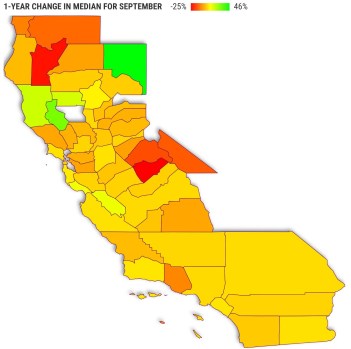It’s possible that, like many Americans, you just received a message from the USPS alerting you to an undeliverable item and asking you to respond by providing the sender with some personal information.
Don’t do it. The USPS will mail you a notecard if you actually have a parcel waiting for you at your neighborhood post office.
In summary, scammers are particularly active around the holidays.
In light of this, an FBI field office agent in Sacramento this week shared 25 recommendations to help people of Northern and Central California be secure online during the 2024 holiday season, when increasingly cunning electronic pickpockets have devised ways to take your money.
Sid Patel, a special agent in charge in the Sacramento field office, stated in a press release that everyone should be aware of the ways cybercriminals target the American public and have a solid defensive strategy to keep secure online. In addition to encouraging the public to learn more and report cybercrime to IC3.gov, we also hope to empower the public to stop cybercriminals’ attempts.
With potential damages reaching $12.5 billion, the FBI’s Internet Crime Complaint Center (IC3) received 880,418 complaints last year. Compared to 2022 figures, that is a 22 percent rise in losses and a nearly 10 percent increase in complaints received.
In the prepared remarks, Patel stated that prevention and awareness are crucial for a successful defense against cybercriminals. He then provided a list of 25 strategies to stop cybercriminals:
- There is no substitute for password security. Use unique, complex passwords for each account using a password management tool, when possible and secure accounts with multifactor authentication, when available.
- If you receive a device with a factory-set password for the holidays, reset the password with a unique, complex password.
- Never store your credit card info online. The convenience is not worth potential compromise of your account.
- Scrutinize all URL addresses and email addresses. Criminals often use addresses that are close to legitimate accounts to confuse potential victims.
- Ignore unsolicited emails, texts, and calls. Criminals spam multiple accounts and numbers in the hope of hooking victims. When in doubt, contact the known, legitimate creditor, business, bank, or shipper using the numbers on your statements or official websites. Do not call numbers offered during unsolicited communication.
- Never post travel plans or photos of tickets online. These posts offer information about your absence from your home and criminals can steal information from the bar codes of tickets. Post comments and photos when you get home.
- Cross-check charities before donating. To ensure your money serves people truly in need and not someone taking advantage of your goodwill, ensure the charity is a registered nonprofit organization.
- Be careful what you click. Clicks can initiate downloads of malware or send you to a false website.
- Be cautious about what you download. Some apps may provide a criminal with more access to your device than you may realize.
- Beware of too-good-to-be-true offers on hard-to-find goods on unfamiliar sites. These sites may be interested in your credit card information, not your business.
- Do not buy animals online from distant, unregistered breeders. Cross-check the breeder s information with breeders associations to determine legitimacy. The animal you may think you are purchasing may not exist and may never be delivered.
- Never make a large purchase for delivery such as a vehicle sight-unseen on the internet. Criminals may make false claims about a vehicle that may not exist and its alleged delivery to steal your money.
- Beware of purchasing online vouchers, gift cards, and tickets through social media or third-party auction sites.
- When purchasing gift cards from a rack, carefully inspect the gift card to ensure it has not been tampered with in any way.
- Be cautious of work-from-home or secret shopper job offers. In some cases, criminals are using these offers to steal your personal information or trick you into making gift card or banking transactions.
- Beware of remote money management jobs that involve receiving and redistributing funds. You may be an unwitting participant in a criminal scheme, acting as a money mule.
- Completing a transaction with a gift card is like completing it with cash. It is untraceable, unsecured, and cannot be recovered. Beware of anyone who asks you to obtain gift cards to complete a transaction or pay a fee.
- When dating online, never send money to anyone you have not met in real life for any reason. Criminals often leverage dating sites to exploit well-meaning but vulnerable victims.
- Be cautious with cryptocurrency investment schemes, especially those requiring an application download promoted by someone you recently met.
- Beware of individuals who claim to be located overseas and need your assistance with sending or receiving money on their behalf.
- Ignore pop-up messages or unsolicited phone calls from individuals purporting to be law enforcement or tech support. Do not give anyone remote access to your computer.
- Locking your credit is free and can prevent someone from opening a credit account in your name without your knowledge.
- Always hang up on calls purporting to be law enforcement that involves any form of financial transaction. Law enforcement will not demand fines to be paid over the phone or for you to open accounts to transfer money into.
- Scrutinize social media posts before sharing them. Your post may legitimize a criminal s fake charity or business post for your network.
- Always report suspected scams to the FBI s Internet Crime Complaint Center (IC3) at ic3.gov.
Note: Every piece of content is rigorously reviewed by our team of experienced writers and editors to ensure its accuracy. Our writers use credible sources and adhere to strict fact-checking protocols to verify all claims and data before publication. If an error is identified, we promptly correct it and strive for transparency in all updates, feel free to reach out to us via email. We appreciate your trust and support!



